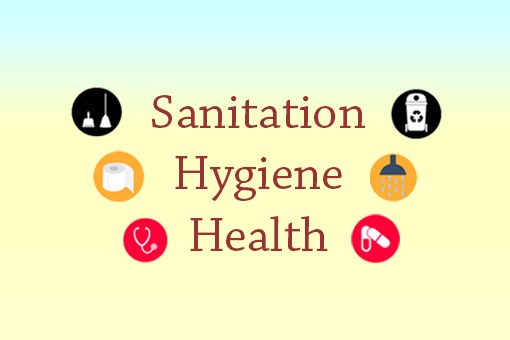"Cleanliness is next to Godliness"
– Mahatma Gandhi
Sanitation and hygiene are two important components related to health. At an individual level and also at a collective level, both become crucial in disease prevention, reducing mortality rate, improving quality of life, better health demographics and building a robust society where members are capable of fully realizing the opportunities of life.
Good sanitation practices such as proper waste disposal, personal hygiene habits, avoiding open defecation & urination, construction of public toilets, sanitation at home & work places are some of the ways for improving sanitation and building a clean and healthy society. In this context, proper education, alternatives to existing conditions, awareness programmes and adequate motivation to opt for healthier practices is significant.
MyGov Arunachal Pradesh invites you to share suggestions on how to increase community awareness and participation, and improve the quality of sanitation in both urban and rural areas in Arunachal Pradesh.

RAJESH MAHATO 3 years 7 months ago
Access to safe drinking water and good sanitation are vital for family well-being. It results in control of enteric diseases, and boosts child health. Improved sanitation also helps the environment. Clean drinking water and good sanitation would not prevent infections without practicing good hygiene
Karan Singh 3 years 8 months ago
सरकार स्वास्थय के क्षेत्र मे अच्छा काम कर रही है!
SUTHAHAR P 4 years 4 months ago
The proverb 'cleanliness is next to godliness' expresses the idea that those who are pure and wholesome are close to God. When the proverb was put forward, in the 17th century, cleanliness (or clenlynesse or cleanlines as it was spelled then) referred to both moral purity and to personal hygiene.
SUTHAHAR P 4 years 4 months ago
Safe water, sanitation and hygiene (collectively known as WASH) are crucial for human health and well-being.
Sanitation and hygiene are critical to health, survival, and development. Many countries are challenged in providing adequate sanitation for their entire populations, leaving people at risk for water, sanitation, and hygiene (WASH)-related diseases.
Dr Brindha Devi V 4 years 4 months ago
IMPORTANCE OF MAINTAINING PERSONAL HYGIENE SHOULD BE EDUCATED TO ALL .
TYPE AND SIZE OF SEWAGE SYSTEM SHOULD BE MONITORED .
NGOS CAN BE USED TO EDUCATE ALL HOW TO MAINTAIN HYGIENE
HOUSES NEARER TO SEWAGE SYSTEMS SHOULD BE REMOVED .
JAYANTA TOPADAR 4 years 4 months ago
Let's make our body an inspiring asset to feel proud of!!!
Adhiraj Ranjan 4 years 7 months ago
The world did not achieve the United Nations’ Millennium Development Goal (MDG) sanitation target (i.e., to halve the proportion of people without sustainable access to basic sanitation by 2015). Now, the United Nations’ Sustainable Development goal (SDG) is for everyone to have “adequate and equitable” sanitation by 2030 3.
Adhiraj Ranjan 4 years 7 months ago
The world did not achieve the United Nations’ Millennium Development Goal (MDG) sanitation target (i.e., to halve the proportion of people without sustainable access to basic sanitation by 2015). Now, the United Nations’ Sustainable Development goal (SDG) is for everyone to have “adequate and equitable” sanitation by 2030 3.
Adhiraj Ranjan 4 years 7 months ago
The world did not achieve the United Nations’ Millennium Development Goal (MDG) sanitation target (i.e., to halve the proportion of people without sustainable access to basic sanitation by 2015). Now, the United Nations’ Sustainable Development goal (SDG) is for everyone to have “adequate and equitable” sanitation by 2030 3.
Adhiraj Ranjan 4 years 7 months ago
The world did not achieve the United Nations’ Millennium Development Goal (MDG) sanitation target (i.e., to halve the proportion of people without sustainable access to basic sanitation by 2015). Now, the United Nations’ Sustainable Development goal (SDG) is for everyone to have “adequate and equitable” sanitation by 2030 3.